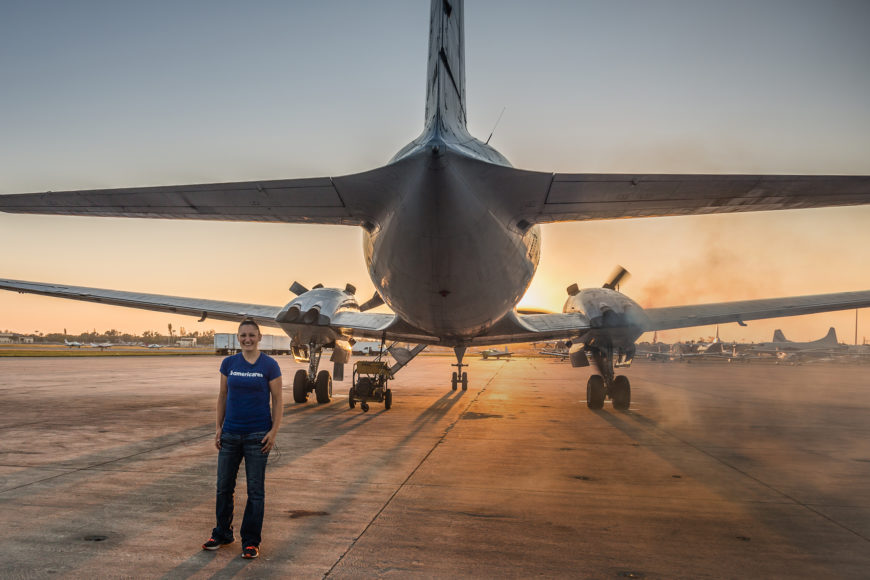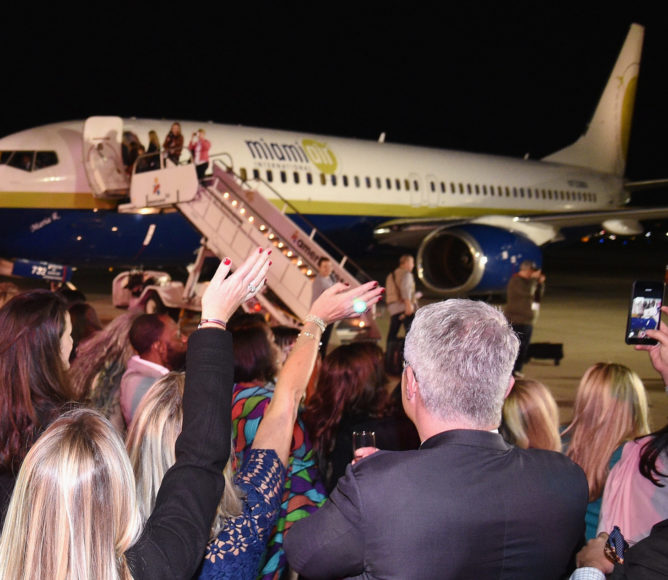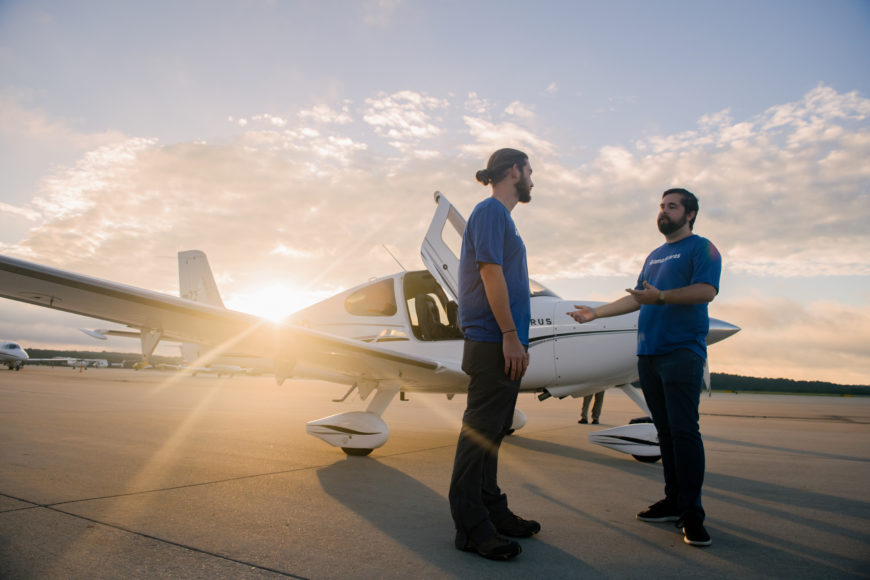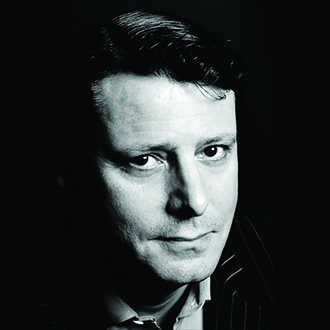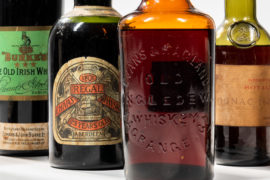The name says it all: Americares really cares. A health-focused relief and development organization that saves lives, helps prevent disease and improves health for people affected by poverty or disaster, Stamford-based Americares reaches some 90 or so countries every year with its life-changing health programs, medicine, medical supplies and emergency aid.
The numbers are staggering. A public nonprofit, the organization delivers more than $500 million in goods and services across the globe annually. Be it Hurricane Michael, the recent Indonesian tsunami or — the week we went to press with this story — the latest appalling earthquake in Haiti, Americares, which since its founding more than 40 years ago has provided more than $19 billion in aid to 164 countries.
As a charity, Americares is also fiscally highly responsible and so especially effective, since its probity adds yet another layer of benefit to its already solid programs and relief work. For the sixth consecutive year, the organization has earned a (highest possible) four-star rating from Charity Navigator, America’s largest independent charity evaluator, for its strong financial health and commitment to accountability and transparency. It follows that in an age where sadly so many charities and nonprofits have fallen short of their obligations in all manner of ways, donors can trust Americares.
Founded in 1979 by Bob Macauley — a New Canaan entrepreneur and businessman who had a lifelong passion to bring relief to the less fortunate — Americares has stayed true to his vision. “If you know the right thing to do, do it. That’s when miracles happen,” said Macauley, an avid newsreader who was always looking at devastating crises around the world and figuring out what he could do to help. He would spring into action-mobilizing resources and funds and combining a can-do spirit with a quick response to emergencies, both close to home and far away.
In 1982, Macauley organized Americares’ first-ever airlift of emergency relief supplies to Poland in response to a personal request from Pope John Paul II. The country was under martial law at the time and there was a great need to help ordinary people survive. Airlifts to El Salvador, Guatemala, Pakistan, Sudan and the Philippines quickly followed, with Americares always first in the door whenever natural — or man-made — disasters struck. In 1986, a cargo plane was dispatched to El Salvador filled with antibiotics, hospital and purification supplies, tents, blankets and water for the survivors of the earthquake there. Two years later, Americares responded to another devastating earthquake, this time in Armenia, with one of its airlifts arriving on Christmas Day, carrying tons of pediatric medicine, blankets and Christmas presents for children who had been orphaned by the quake.
“It’s pretty amazing for me to look back at where we were then to where we are today,” says Christine Squires, president and CEO of Americares, who auspiciously stepped into the job on March 13, 2020, just as the extent of Covid-19 was becoming apparent and, as Squires says, “the day most of America went on lockdown and remote.” With more than 25 years’ experience in the health and humanitarian rights sector, and despite already having been with Americares for five years (as the organization’s executive vice president and chief development officer), Squires was about to find the pandemic to be one of Americares’ greatest hurdles. “It was like living in the middle of a hurricane while responding to it at the same time,” is how Squires, an Old Greenwich resident, describes it. “And the hurricane’s still going on,” she adds.
To date, Americares has distributed more than 90 tons of PPE around the globe and provided handwashing stations to countries like Malawi, El Salvador and Columbia while working with frontline health workers to deal with trauma, stress and anxiety.
Meanwhile, the “everyday” work of Americares continues. In addition to disaster response, the organization supplies medicines to pharmaceutical partners free of charge and distributes them to some 4,000 health centers around the world. Those supplies are dispatched either by commercial airlines or by sea container. In emergencies, however, planes may well be chartered, as was the case at the time of Hurricane Maria, when urgent supplies were dropped into Puerto Rico. And the organization never stands still: In an exciting new development when it comes to air transportation, Americares also just entered into what Squires calls “a really cool partnership” with Zipline, the global leader in instant logistics, to deliver medicines and medical supplies to hard-to-reach facilities in Ghana — by drone.
All of Americares programs and relief operations originate in its Stamford distribution center. “What’s still amazing and inspiring for me,” says Squires, “is to walk through the warehouse and see supplies ready for shipment and where they’re going, with labels showing every imaginable destination — Lebanon, Tanzania, even for the wildfires in California.”
Its global reach notwithstanding, Americares is the embodiment of the old axion that charity begins at home. It works with more than 1,000 clinics across the United States — with four clinics in Connecticut alone, serving low-income and uninsured patients in Stamford, Bridgeport, Danbury and Norwalk. Most patients visit because they have been diagnosed with a chronic disease, like diabetes, hypertension or asthma — or simply for a checkup because they have gone years without seeing a doctor. Staffed by volunteer doctors, nurses and interpreters, these clinics have also helped patients cope with Covid, offering administrative help as well as vaccinations.
Nationwide, Americares is the leading nonprofit provider of medical aid to the U.S.’ “health safety net,” a network of free and charitable clinics serving seven million uninsured Americans. And during the pandemic, it has also been partnering with the CDC to work on the thorny issue of vaccine hesitancy.
Squires points out that Americares’ worldwide paid staff of 500 is not that big, considering the remit and the workload. (Some 100 staff members, she mentions, are deployed in Colombia alone, where Americares operates nine medical clinics throughout the country to provide essential primary care services and access to medicine for migrants fleeing the humanitarian emergency in Venezuela.) She stresses that Americares is only as productive and successful as it is because of its partners and the large number of supporters and volunteers it marshals at every turn.
Of course, all of this needs immense funding and in addition to its other enterprises, Americares has been running its annual Airlift Benefit for more than 30 years. The benefit started as an initiative to get a small group of supporters together and take them on a 24-hour journey to see Americares’ work first-hand. But the event has grown into a massive annual fundraiser, with up to 900 guests enjoying a gala evening in the JPMorgan Chase private hangar at Westchester County Airport in White Plains — the space donated by the bank. Echoing the early days, 100 or so selected guests — like actor, director, producer Tony Goldwyn, an Americares ambassador and board member and December 2018 WAG’s cover subject — are whisked away in a chartered plane to places like El Salvador, Guatemala and Puerto Rico to see for themselves how Americares goes about its remarkable work.
“It’s an amazing experience for our supporters,” says Squires — and one which the pandemic has not halted. This year’s event, like last year’s, will be virtual, with Goldwyn (the evening’s host) and Jennifer Aniston as the two honorary co-chairs. Beginning at 8 p.m. Oct. 2 and open to the public online, the event is targeting a fundraising goal of $2 million.
It may sound like an extraordinary online party, but most important the evening will raise critical funds so that Americares can keep on doing the work it does. And the work that millions of people the organization supports around the world need it to do.
For more, visit americares.org.

